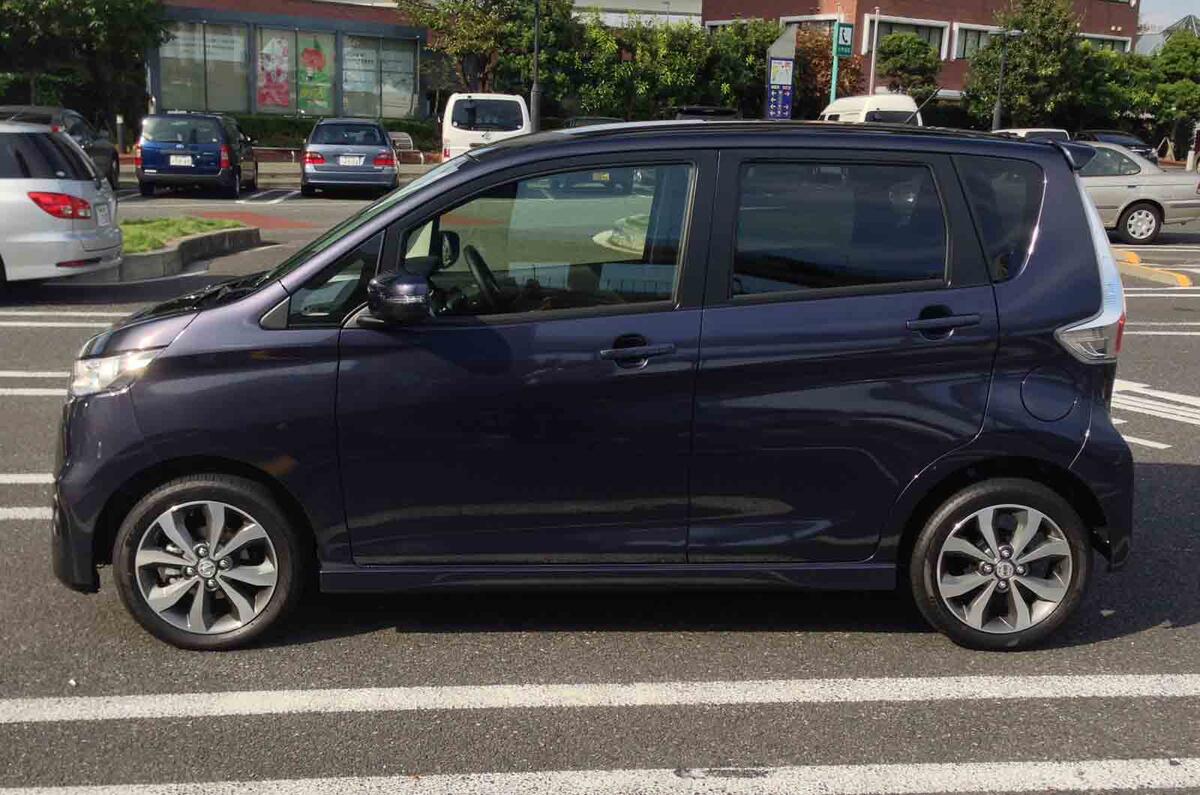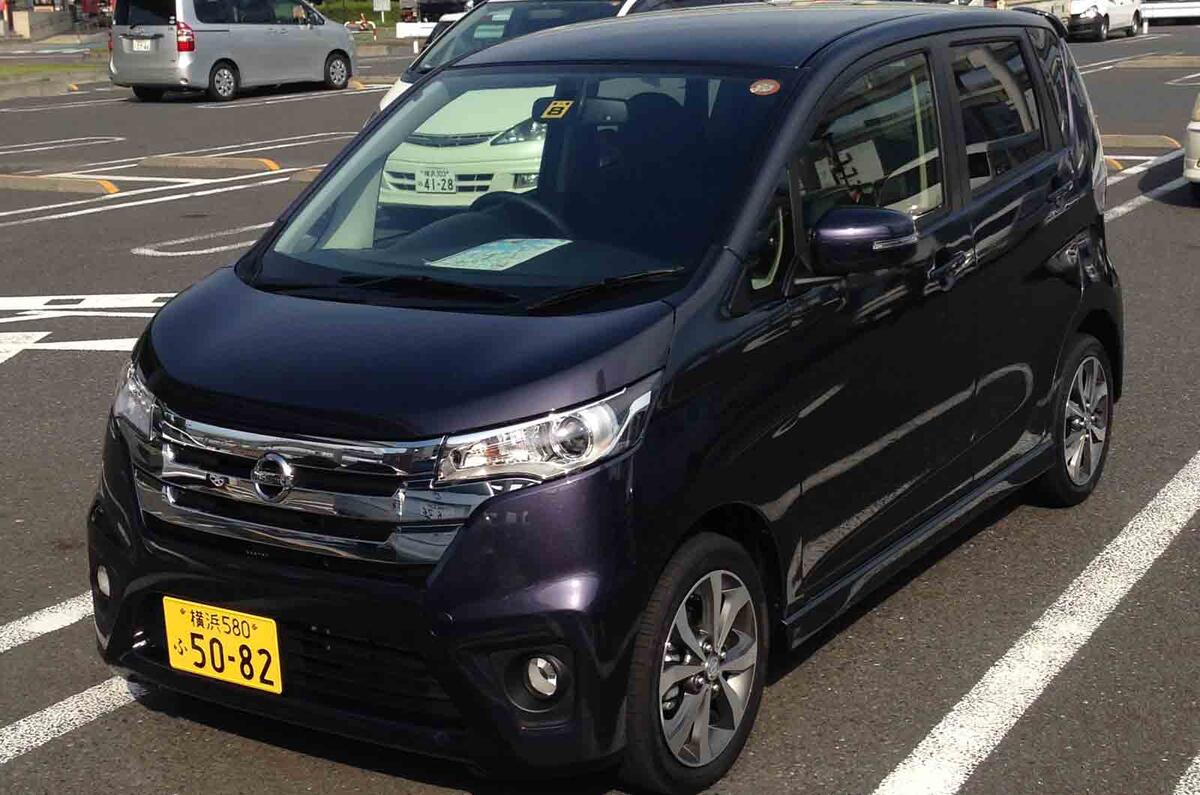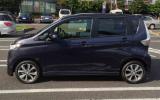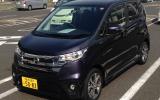On any trip to Japan, where I am now, you simply can't miss the ever-present baby cars (known here as kei cars) that line every street and sit shoulder to shoulder in every car park.
The space-saving logic of their boxy proportions, high roofs, straight sides and super-efficient engines is irresistible - but what struck me on this visit (if you forgot the different architecture) was how similar Japan's narrow roads and limited parking places are to many suburban streets in London - where we insist on parking overlong and over-wide saloons, MPVs and estates and are willing to suffer the consequences every morning.
What encouraged these radical thoughts was a brief drive through inner Tokyo in the new Nissan kei car, the funky-sounding Dayz Highway Star. It's the latest boxy creation for this thriving micro car market that collars 40 per cent of car sales in Japan, and rising.
For £6000, taxes paid, you get the 45bhp, non-turbo, three-cylinder, 659cc version of this style-less yet oddly attractive little car; it's just 3.4 metes long but tall and skinny at 1.64m x 1.48m.
And pretty light at 820kg, considering it's a safe and modern structure with the ABS and chassis stability gizmos now considered essential. If you're prepared to invest £8750, you can have a full-house version with a 63bhp turbo engine, climate control, colourful sat-nav, one-shot windows and all the rest.
Here's the point. The Dayz, which has a CVT transmission, is simple fun to drive and has big-car step-off at the lights. It also has surprisingly long legs courtesy of an engine as silent and vibe-free as a Lexus limo.
It steers nicely, grips corners perfectly well on its small-section, low rolling-resistance tyres, and the ride is as good over city ruts (not that there are many in Tokyo) as a decent European city car. And it's much roomier than cars we know with anything like this length and width.
Thus, as you drive, you can't help thinking London thoughts.
The experts say it wouldn't work. There's an interesting piece of YouTube video of a Nissan man from Japan explaining in sign language exactly how fat Westerners wouldn't fit the narrow cabin comfortably (although this fat Westerner fitted quite well). And since kei cars are made only in Japan, every car sold would have to travel 6000 miles from factory to buyer, which would cut its already-meagre earning power.
Still, the refinement and performance amply demonstrate the amazing progress in the refinement and usability of small cars in recent years, which make big engines (over about 1.5-litres) an ever-greater indulgence.











Join the debate
Add your comment
We've got Up!
No more visual atrocity, please. Thanks.
Has potential, just needs a bit of work.
It could potentially work though the Kei Car regulations would first need to be updated to be more suitable and secondly internationalized.
Quite a few downsized engines such as the 2-cylinder Fiat TwinAir, 3-cylinder Ford EcoBoost and others are already below the sub-1.0 mark, which serves as a good basis for establishing Kei Car-inspired Micro / City Car regulations outside of Japan.
Ideally, the Kei-inspired Micro / City Car class would be open enough to interpretation to spawn various types of Kei Car-inspired vehicles, so as to make it more appealing for people to downsize to smaller cars as the current Kei Car class had previous done in Japan in the past (Suzuki Cappuccino / Honda Beat, Kei version of the Suzuki Whizzkid, etc).
Making it work though would entail Japanese carmakers increasing the capacity and hp above the current 63 hp 660cc limit to say roughly around 73-87 hp 750-900cc, with non-Japanese carmakers continuing the positive trend of making cars smaller and lighter towards a target max size / dimensions (e.g. between say a Rover Spiritual and a mk3 Fiat Panda?) and kerb weight (e.g. 900kg and under).
It's Already Happening
As all car makers reduce their overall emissions and smaller engines become more prevalent, so too do the sizes of cars as we see even so-called 'premium' manufacturers producing ever more compact vehicles such as BMW's front wheel drive 1-Series etc.
Eventually, world car market requirements will merge, reflecting higher fuel/energy costs and increasing levels of congestion compounded by increased costs levied for driving a car into city centres
Absolutely not.
These new smaller BMWs are enormous (unless you compare them to the even larger ones) and cars generally are much too large and getting larger. (Try parking a MINI next to a Mini, or a Fiat 500 to a Nuova 500.) Safety concerns inter alia make it impossible to turn the clock back but the fact that premium manufacturers are trying to broaden their range downwards shouldn't cloud the reality which is that city streets are running out of space.